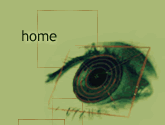|
|
|
|
|
|
|
|
|

|
|
||||||
|
|
|
||||||
|
|
|
|
|||||
|
|
|
||||||
|
|
|
||||||
|
|
|
||||||

|
|
||||||
|
|
|
||||||
|
|
|
||||||
|
|
|
||||||
|
|
|
|
|||||
|
|
|
|
|||||
|
|
|
|
|||||
|
|
|
|
|
||||
|
|
|
||||||

|
return to page 2 of conversation Michael : I know you've written elsewhere about that accident, and won't ask you to rehash the circumstances. (See: Joel's Journal article, Red Sea ) But I'm wondering what the experience of, essentially, categorizing (or recategorizing) yourself was like, with its implications in so many areas of your life. |
| Joel : The re-categorization, as you put it, was brutal. Relinquishing my car threatened to crush all hope. It wasn't just the loss of practical independence, but the loss of a sense of prospects, of the right to keep dreaming in a very American way that the future might yet, against all evidence, still hold every reward of work and comfort of love that an uncertain middle-aged late bloomer might yearn to attain. "What does not change / is the will to change," goes the reassuring, exhorting line in Charles Olson's "The Kingfishers," a line I still hold close to me and try to believe is true. But the onslaught of gloomy thoughts that dominated my mood then boded poorly. The main thought, the one that stained the rest like death, was that I was now, unarguably, disabled, with all the most incapacitating implications that can attach to the word. |
| Michael : I remember talking to you shortly after the accident with the pedestrian, and you were clearly shaken. But I did not grasp what a profound realization that event had forced on you, or how devastating it was. No doubt my own density and denial played a part: I have to admit that most of the time there's something like a ten year lag between the actual state of your vision and how I imagine it. The fact that we live in different cities doesn't help, but I'm sure some of it is my own inability to acknowledge the extent and implications of your disability. |
|
Joel : I think a big reason for that gap really is denial, actually. No matter what I explain, or even what I write. While sympathetic strangers and acquaintances, and readers who don't know me tend to overestimate the extent of my blindness and incapacity, my intimate friends, by comparison, persistently underestimate both. When we're out together, I often have to remind them to guide me through a dark restaurant, or implore them to be more verbal when I sense they've forgotten I can't see their facial expressions, or even see their faces at all, straight on. Sometimes their discomfiture is really palpable. I think we don't want to believe things like this can happen to those we care for, both from heartfelt pity as well as because our friends' injuries and illnesses remind us of our own fragility, of limitation, of death. So, unconsciously, we switch on cognitive governors to slow the rate of our comprehension. And why not, I ask you. |
|
|
|
|
|
|
|
|

|
|

|

|

|
|
|
|
|
|
|||||
|
|
|